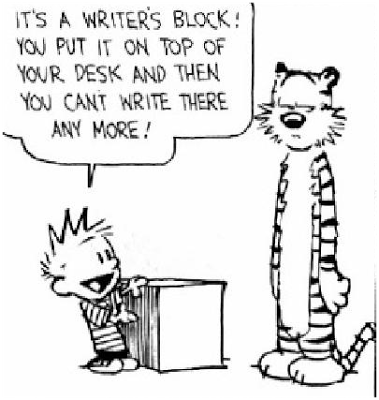Roland Yeomans's Blog, page 37
May 11, 2023
The ZEN of WRITING

A New York Times essay recently stated that modern fiction has lost its faith ...
that Christian belief figures into literary fiction in our place and time as something
between a dead language and a hangover.
I believe it is worse than that:
many books seem to have lost touch with the soul, the wonder, and the magic
without which our prose tales are shallow pursuits of sensory titillation.
WE HAVE LOST THE MAGIC

There is a land not too far from where you sit right now.
Its velvet grasses miss the press of your feet.
The billowing clouds strain to see your body walk slowly up the rising hill.
The fragrant winds blow through the lonely tree branches,
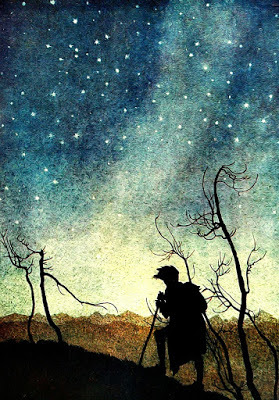
whispering your name as they seek some trace of you.
It is where the magic lives.
That realm is lonely, wondering where you have been.
And where have you and I been?
We have been caught up in the drudgery that writing has become.

Burdened by life's duties and our own doubts,
Battered by the fears of the plague at our doors,
we have lost our way.
We have lost the magic.
Did we lose it straining for that first perfect sentence in our new novel?
Looking at the blank, impatient computer monitor
did we forget the simple wonder of just writing the first simple sentence that occurred to us?
That creative power which bubbles so tingly at the beginning of our book quiets down after a time.
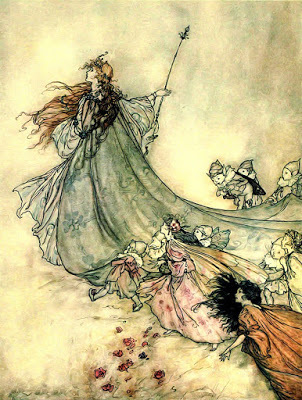
The journey becomes slower and slower, the inertia of doubt steadily dragging our steps.
Do we continue doggedly on or do we stop to refresh ourselves?
The answer to that question determines whether we find our way back to the magic or not.
How do we refresh ourselves?
How do we refresh ourselves on a long wilderness walk? We stop by a stream and drink.
Drink of those poets and writers who sparked that love of the written word spoken in the lonely heart of the reader.
As a hiker takes shade under the canopy of a huge oak,

listen to the music of those artists who stirred you to imagine images that you just had to write and make live in your own way.
Then, you shall write as a child writes ...
not thinking of a result but thinking in terms of discovery as if you were hiking once again where the magic lives.
It is the Zen of writing:
the creation takes place between your fingers and the keyboard,
not before in a thought or afterwards in a recasting.
The magic is there waiting for you. It will come if you but get out of its way and let it in.
May 10, 2023
CHARACTER is the KEY
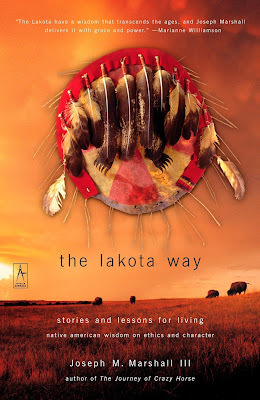 https://www.amazon.com/dp/0670894567/
https://www.amazon.com/dp/0670894567/
"Oh, Great Spirit, whose voice I hear in the winds, Whose breath gives life to the world, hear me,
I come to you as one of your many children,
I am small and weak, I need your strength and wisdom.
May I walk in beauty
Make my eyes ever behold the red and purple sunset.
Make my hands respect the things you have made
And my ears sharp to your voice.
Make me wise so that I may know the things you have taught your children. The lessons you have written in every leaf and rock,
Make me strong!
Not to be superior to my brothers, but to fight my greatest enemy... myself
Make me ever ready to come to you with straight eyes,
So that when life fades as the fading sunset,
My spirit may come to you without shame."
Translated by Chief Yellow Lark - 1887

"The true measure of character is the smile on a friend's face when the person approaches." - Ingrid Durtz

WHAT ISCHARACTERTO YOU?
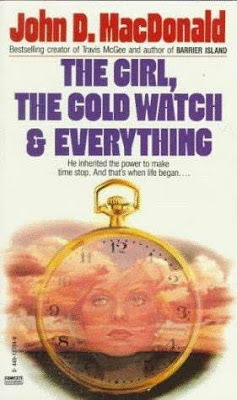 https://www.amazon.com/dp/B00E2RXHT8/
https://www.amazon.com/dp/B00E2RXHT8/A deep rumbling voice awakened me, "Hey, kid. Kid! Roland!"
Midnight growled his "Not another ghost" growl ...
which was rather funny since he spends most of the time I am gone curled up on the lap of the ghost of Mark Twain.
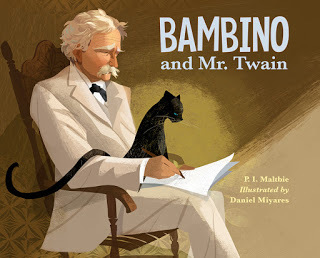 https://www.amazon.com/dp/1580892736/
https://www.amazon.com/dp/1580892736/Though he maddens Midnight by calling him Bambino.
I pried open my eyes. And shot right up.
John D. MacDonald.
Sitting in his ghost chair, spectral smoke trailing up from his pipe into the mists of the night.
"You underlined passages in my book you were reading before you fell asleep tonight. It called out to me in the ShadowLands."
"You're a master, sir. I learn so much from your prose even after re-reading it for the tenth time."
His eyes gazed out over my shoulder to realms he looked like he wanted to forget but couldn't.
"I feel pretty much forgotten, son."
"Not to me, sir."
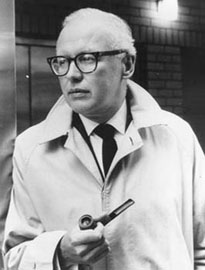
He nodded. "And because of that I wanted to drop by personally and give you a few pointers on how to write. I wanted you to learn the truth behind my words."
"What truth, sir?"
"Integrity.
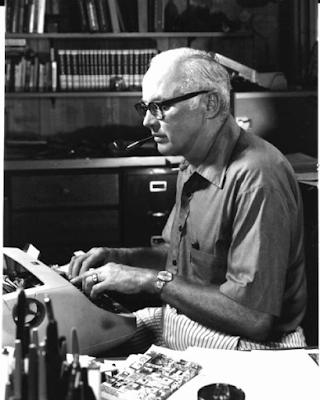
Integrity is not a conditional word. It doesn't blow in the wind or change with the weather. It is your inner image of yourself,
and if you look in there and see a man who won't cheat, then you know you never will. Integrity is not a search for the rewards of integrity.
Maybe all you ever get for it is the largest kick in the ass the world can provide. It is not supposed to be a productive asset.”
I whispered, "That's what you wrote in THE TURQUOISE LAMENT."
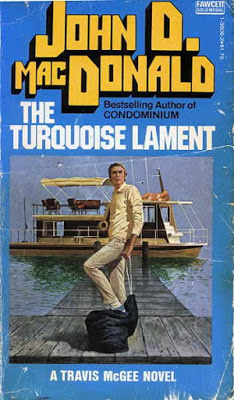
He nodded. "But nonetheless true. At times it seems as if arranging to have no commitment of any kind to anyone would be a special freedom.
But in fact the whole idea works in reverse. The most deadly commitment of all is to be committed only to one's self. Some come to realize this only after they are in the nursing home.”
He sighed. "There are people who try to look as if they are doing a good and thorough job, and then there are the people who actually damn well do it, for its own sake. You are a writer of the later sort.”
He took off his glasses and rubbed his eyes. "The only thing in the world worth a damn is the strange, touching, pathetic, awesome nobility of the individual human spirit."
He put them back on and nudged them up his nose. "I know just enough about myself to know I cannot settle for one of those simplifications which indignant people seize upon to make understandable a world too complex for their comprehension.
Astrology, health food, flag waving, bible thumping, Zen, nudism, nihilism --
all of these are grotesque simplifications which small dreary people adopt in the hope of thereby finding The Answer,
because the very concept that maybe there is no answer, never has been, never will be, terrifies them."
I said softly, "I think there is some kind of divine order in the universe. Every leaf on every tree in the world is unique.
As far as we can see, there are other galaxies, all slowly spinning, numerous as the leaves in the forest.
In an infinite number of planets, there has to be an infinite number with life forms on them. Maybe this planet is one of the discarded mistakes. Maybe it's one of the victories. We'll never know."
MacDonald husked, "Not on your side of the grave."

He blew out his cheeks. "But I came here to talk on how to write better not to speak of the damned. Speaking of which, I wrote THE DAMNED because I knew the locale.
I was interested in what would happen if a lot of people got jammed in the crossing. I knew a lot of things would happen."
He smiled crooked, "And that, son, is the definition of a story."
His smile dropped from his lips like the weight of sin. "I found living it in the ShadowLands is the definition of Hell."
He looked back to me. "Now, for writing characters:
We're all children. We invent the adult facade and don it and try to keep the buttons and the medals polished.
We're all trying to give such a good imitation of being an adult that the real adults in the world won't catch on.
Each of us takes up the shticks that compose the adult image we seek."
He brooded a look at me. "Which leads me to what character should drive the actions of your novel. I think that most of us have a greater liking for strong and solid people than we have for the wimps of the world.
With strong people you can tell where you stand. Nobody, of course, is too strong never to be broken.
And that is my protagonist's, Travis McGee, forte, helping the strong broken ones mend."
He put out a forefinger.
"One, people want to spend time reading about someone they would like to be, doing the things they would love to do if they could.
And getting away with it.
No one wants to pay to be depressed and defeated, Roland. That comes for free in life."
He put out a second finger. "Two, writing is an adventure in and of itself:
I remember when I first started out --
I had four months of terminal leave pay at lieutenant colonel rates starting in September of 1945, ending in January 1946.
I wrote eight hundred thousand words of short stories in those four months, tried to keep thirty of them in the mail at all times, slept about six hours a night and lost twenty pounds.
I finally had to break down and take a job, but then the stories began to sell. I was sustained by a kind of stubborn arrogance.
Those bastards out there had bought one story “Interlude in India,”
and I was going to force them to buy more by making every one of them better than the previous one. I had the nerves of a gambler and an understanding wife."
He looked off into the shadows. "Mostly, an understanding wife."
He turned to me. "I can't find her in the ShadowLands, Roland. And it's killing me."
I cleared my closing throat. "I'll ask Samuel McCord ...."
He shook his head. "He's already tried, son. No luck."
He sniffed sharp and drew in a breath. "Where was I? Oh, yes."

He stuck out a third finger. "Three, series and first-person narrative. You're doing that with your Sam McCord, Victor Standish, and Dark Hollywood series.
Remember a series is only confining if you let it be so. If your imagination is large scope so will be your series.
As for first person narrative -
First-person fiction is restrictive only in that you can’t cheat. The viewpoint must be maintained with flawless precision.
You can’t get into anyone else’s head. The whole world is colored by the prejudices and ignorances of your hero.
Remember the child in your hero.
Adult pretenses are never a perfect fit for the child underneath,
and when there is the presentiment of death, like a hard black light making panther eyes glow in the back of the cave,
the cry is, "Mommy, mommy, mommy, it's so dark out there, so dark and so forever."
He rose and slapped his upper thighs, "If you forget what I've just said, remember this --
If you want to write, you write.
Unlike with brain surgery, the only way to learn to write is by writing. Take Stephen King --
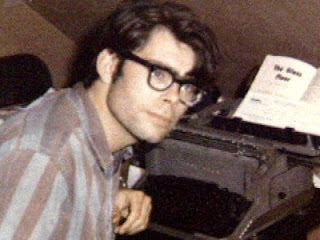
Stephen King always wanted to write and so he writes --
books and fragments and poems and essays and other unclassifiable things, most of them too wretched to ever be published.
Because that is the way it is done.
Because there is no other way to do it. Not one other way.
Compulsive diligence is almost enough. But not quite.
You have to have a taste for words. Gluttony. You have to want to roll in them. You have to read millions of them written by other people.
You read everything with grinding envy or a weary contempt.
You save the most contempt for the people who conceal ineptitude with long words, Germanic sentence structure, obtrusive symbols, and no sense of story, pace, or character.
Then you have to start knowing yourself so well that you begin to know other people. A piece of us is in every person we can ever meet.
Okay, then. Stupendous diligence, plus word-love, plus empathy, and out of that can come, painfully, some objectivity.
Never total objectivity.
It comes so painfully and so slowly.
You send books out into the world and it is very hard to shuck them out of the spirit.
They are tangled children, trying to make their way in spite of the handicaps you have imposed on them.
I would give a pretty penny to get them all back home and take one last good swing at every one of them. Page by page. Digging and cleaning, brushing and furbishing. Tidying up.
Are you and I all together so far?
Diligence, word-lust, empathy equal growing objectivity and then what?
Story.
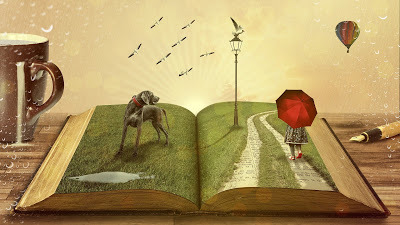
Story. Dammit, story!
Story is something happening to someone you have been led to care about.
It can happen in any dimension -physical, mental, spiritual – and in combinations of those dimensions.
Without author intrusion.
Author intrusion is: ‘My God, Mama, look how nice I’m writing!’
Another kind of intrusion is a grotesquerie. Here is one of my favourites, culled from a Big Best Seller of yesteryear: ‘His eyes slid down the front of her dress.’
Author intrusion is a phrase so inept the reader suddenly realizes he is reading, and he backs out of the story. He is shocked back out of the story.
Another author intrusion is the mini-lecture embedded in the story. This is one of my most grievous failings.
An image can be neatly done, be unexpected, and not break the spell. In a Stephen King story called ‘Trucks,’
Stephen King is writing about a tense scene of waiting in a truck shop, describing the people:
‘He was a salesman and he kept his display bag close to him, like a pet dog that had gone to sleep.’
I find that neat.
Nice. It looks so simple. Just like brain surgery. The knife has an edge. You hold it so. And cut.
The main thing is story.
One is led to care.
Note this. Two of the most difficult areas to write in are humour and the occult. In clumsy hands the humour turns to dirge and the occult turns funny.
But once you know how, you can write in any area.
Write to please yourself. I wrote to please myself. When that happens, you will like the work too."
His deep eyes locked onto mine. "Life is a coin, Roland. You can spend it any way you want. But you can only spend it once."
And with those words, he was gone. His wisdom stayed. I thought I'd pass it on.

Midnight just wants his undisturbed sleep back.
***
Here is a tune that the ghosts of John D. MacDonald and Ernest Hemingway like:
May 9, 2023
WRITER'S BLOCK and What to Do About It
That was what Dr. Edmund Bergler called it in the 1940's. Who the heck is Edmund Bergler anyway, you ask?
He was the man who first coined the term : Writer's Block.
After conducting multiple interviews and spending years with writers suffering from creative problems,
he discarded some of the theories that were popular at the time.
They hadn't drained themselves dry. They were not victim of a lack of external motivation: pay the landlord.
Nor did they lack talent nor possessed by laziness nor were they simply bored.
In a 1950 paper called “Does Writer’s Block Exist?,” published in American Imago,
a journal founded by Freud in 1939, Bergler argued that a writer is like a psychoanalyst.
He “unconsciously tries to solve his inner problems via the sublimatory medium of writing.”
A blocked writer is actually blocked psychologically—
and the way to “unblock” that writer is through therapy.
Psychiatrists all over America are now rubbing their hands
in eager anticipation of hordes of anguished writers.
Not so fast there, Doc!
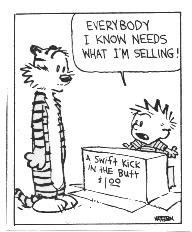
In the nineteen-seventies and eighties, the Yale University psychologists Jerome Singer and Michael Barrios
tried to gain a more empirically grounded understanding of what it meant to be creatively blocked.
To give you the Cliff Notes version of their findings:
Blocked writers did, indeed, suffer from
flagging motivation, felt less joy in writing, daydreamed less, and could not recall their dreams.
Ah, Ha!

The famous prolific writer, Graham Greene, fell victim to the dreaded Writer's Block
and stumbled onto a solution that worked for him.
In his fifties, he faced a creative “blockage,” as he called it,
that prevented him from seeing the development of a story or even, at times, its start. In his youth, he had kept a dream journal.
The dream journal proved to be his savior.
Dream journaling was a very special type of writing, Greene believed.
No one but you sees your dreams. No one can sue you for libel for writing them down. No one can fact-check you or object to a fanciful turn of events.
He once told a friend:
“If one can remember an entire dream, the result is a sense of entertainment sufficiently marked to give one the illusion of being catapulted into a different world . . . .
One finds oneself remote from one’s conscious preoccupations.”
In that freedom from conscious anxiety, Greene found the freedom to do what he otherwise couldn’t: write.
Such escapes allow writers to find comfort in the face of uncertainty;
they give writers’ minds the freedom to imagine,
even if the things they imagine seem ludicrous, unimportant, and unrelated to any writing project.
Greene once had the following dream:
— ‘Beauty makes crime noble’ —
when I was interrupted by a criticism flung at me from behind by T.S. Eliot.
‘What does that mean? How can crime be noble?’ He had, I noticed, grown a moustache."
Suffering from Writer's Block?
Why not try putting down your last dream into prose?
As Louis L'Amour wrote: "The water does not flow until you turn on the faucet."
Go ahead: explore your inner self. You might be surprised what you find.

May 8, 2023
SOME WEREWOLVES ARE HAIRY ON THE INSIDE

"His heart exists inside the dry leaves of a soul." - F. Scott Fitgerald ( of Hemingway)
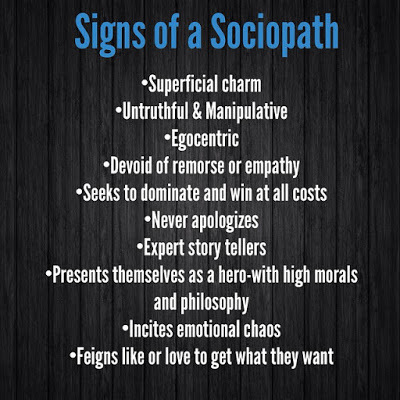
“I could forgive you even your cruelty if it were not for your calm.” - G. K. Chesterton
Psychiatrists have believed that
psychopaths are defined by qualities of callousness, lack of emotion, and coldness.
They lack empathy, in other words.
They start out with barely a moral compass, or don't have one at all,
while sociopaths tend to develop their skewed moral compass throughout childhood and adulthood.
These predators, both male and female, haunt our everyday lives at work, at home, and in relationships.
This is a class of individuals who have been around forever and who are found in every culture, society and walk of life.
Everybody has met these people, been deceived and manipulated by them,
and forced to live with or repair the damage they have wrought.
These often charming—but always deadly—individuals have a clinical name: psychopaths.
Their hallmark is a stunning lack of conscience;
their game is self-gratification at the other person's expense.
Many spend time in prison, but many more do not.
All take far more than they give.
QUESTIONS TO ASK ABOUT THOSE AROUND YOU
1. Do you often feel used by the person?
2. Have you often felt that he (or she, because women can be sociopaths too) doesn't care about you?
3. Does he lie and deceive you?
4. Does he tend to make contradictory statements?
5. Does he tend to take from you and not give back much?
6. Does he often appeal to pity? Does he seem to try to make you feel sorry for him?
7. Does he try to make you feel guilty?
8. Do you sometimes feel he is taking advantage of your good nature?
9. Does he seem easily bored and need constant stimulation?
10. Does he use a lot of flattery? Does he interact with you in a way that makes you feel flattered even if he says nothing overtly complimentary?
11. Does he make you feel worried? Does he do it obviously or more cleverly and sneakily?
12. Does he give you the impression you owe him?
13. Does he chronically fail to take responsibility for harming others? Does he blame everyone and everything but himself?
SURVIVAL GUIDE
1.) MIND YOUR MIND
If in describing a new friend to others, you use
"charming" and "persuasive" and "he/she says the most outrageous things but you just can't get mad at him/her" --
You have trouble on your hands. Disengage quickly.
2.) UNDER THE ICING IS ONLY MORE ICING
It is easy to get get swept up by the winning smile, the captivating body language, and the fast talk of the typical psychopath.
Step back when you feel pulled in too quickly by someone.
Ask why that stunning person was unattached before you met them.
Perhaps there is a wake of ruined lives behind that person.
3.) KEEP YOUR GUARD UP IN HIGH RISK SITUATIONS
The summer season is coming with lots of parties,
meeting new people when your mind is blunted by the relaxed sunshine days on the beach, laughter and alcohol.
Lions lurk by the water hole for a reason.
Some situations are tailor-made for psychopaths:
singles bars, ship cruises, foreign airports, etc.
In each case, the potential victim is lonely, looking for a good time, excitement, or companionship,
and there will usually be someone willing to oblige, for a terrible future price.
4.) KNOW THYSELF
Psychopaths are skilled at detecting and ruthlessly exploiting your weak spots.
Your best defense is
to understand what these spots are, and to be extremely wary of anyone who zeroes in on them.
5.) ONLY ONE REMEDY
There's only one solution for dealing with a sociopath:
Get him or her completely out of your life for good.
Enjoy your lifebut mind your surroundings and those around you.
“Some werewolves are hairy on the inside.”
―Stephen King, Danse Macabre
May 7, 2023
DO YOU KNOW WHO YOU ARE?

"The world is doing its best, night and day, to make you everybody else." - E.E. Cummings
Try as we might not to be blinded by society’s prescriptions for happiness,
we are still social creatures porous to the values of our peers.

We seem lost, myopic about the things we believe will complete us as human beings, habitually aspiring to the wrong things for the wrong reasons.

We are beings profoundly different from what we imagine ourselves to be.
The things we pursue most frantically are the least likely to give us lasting joy and contentment,

“It is impossible to escape the impression that people commonly use false standards of measurement — that they seek power, success and wealth for themselves and admire them in others, and that they underestimate what is of true value in life.”
― Sigmund Freud

“I cannot cause light; the most I can do is try to put myself in the path of its beam." - Annie Dillard

“No one can build you the bridge on which you, and only you, must cross the river of life.” - Nietzsche

You can't grasp the concept of the soul, of your psyche.
Like a dust mote or a ghost,
it can only be seen out of the corner of your perception. Looked for directly, it disappears.
Like happiness or contentment, it comes to you while you pursue a needful goal or easing another's pain.
 What do you think is
the path to self-awareness?
What do you think is
the path to self-awareness?
May 6, 2023
What Famous Writers Did While WRITING

I'm a writer so I can say this:
Take Charles Dickens and his deaf cat, Bob.
Bob would watch Dickens as he read by candlelight.
If he felt in need of play time,
he would put out the candle with his paw repeatedly until the author got the idea.
Like Macak did with Nicola Tesla as a child,
Bob would follow Dickens about like a dog.
Dickens loved Bob. So much so that when Bob died, the master turned him into a letter opener!!
Not the whole cat, actually. Just a single paw,
which the author had stuffed and attached to an ivory blade.
The blade is engraved “C.D. In Memory of Bob 1862″
which is more grave marker than most pussycats can hope for.
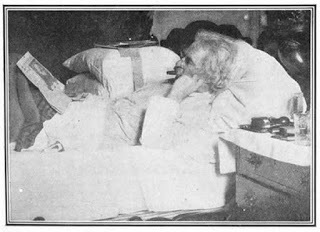
Among the successful novelists who wrote lying down are Mark Twain, George Orwell, Edith Wharton, Woody Allen and Marcel Proust.
They were all known for churning out pages while lying in bed or lounged on a sofa.
American author and playwright Truman Capote even claimed to be a
“completely horizontal author” because he couldn’t think and write unless he was lying down.
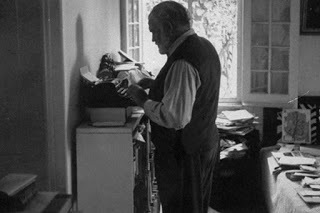
Writers like Hemingway, Charles Dickens, Virginia Woolf, Lewis Carroll, and Philip Roth all liked writing standing up.
These great thinkers have been inspired to pen their finest pieces at their standing desk.
For health-conscious writers, this technique might work for you because standing desks offer many proven benefits.
Vladimir Nabokov, author of Lolita, Pale Fire, and Ada, was very particular about his writing instruments.
He composed all his works on index cards, which he kept in slim boxes.
This odd method enabled him to write scenes non-sequentially and re-order the cards any time he wanted.
Nabokov also stored some of his lined Bristol cards underneath his pillow.
This way, if an idea popped into his head, he could quickly write it down.
You can use index cards when doing your note-taking or plotting too.
It’s a different way to construct your story that can knock fun things loose.

For decades, Dumas used various colors to indicate his type of writing.
Blue was the color for his fiction novels,
pink for non-fiction or articles and yellow for poetry.
And you thought writing to music was strange when you did it?!
And we won't even get into Dan Brown hanging upside down to stir up his muse!
May 5, 2023
GOD CAN'T BREATHE --
For those of you emailed me wondering about my Mention of Victor Standish last post
Proving fiction can be prophetic, I wrote this 8 years ago, birthed from a news photo. https://www.amazon.com/dp/B005NCUTAG
https://www.amazon.com/dp/B005NCUTAG
Ten days before a Katrina-bruised Christmas,
and here I was out on the streets once more. Alice had told me she never wanted to see me again.
Don't ask why.
I'm Victor Standish.
I always find a way to snatch defeat out of the mouth of victory. It is my curse to be always alone.

It was night and cold for once in New Orleans. A little black and white puppy, starved down to a walking set of ribs, shivered in the alley to my right.

I took the stale croissant from my lips. I bent down and held it out to the poor little guy.
"C'mon, Lucky. Good groceries."
I jerked as a black man appeared as if out of nowhere. "You call him Lucky?"
"Yeah," I smiled. "He's got a new friend ... me."
I petted Lucky's tiny head. "And he'll never be hungry or alone again."
The man looked ripped as if he pumped iron, and he laughed at me.
"Not iron ... wood. Plane a tree into planks, and it builds muscle."
He sighed as he saw Lucky hesitantly nuzzle my hand.
“No one's life should be rooted in fear. We are born for wonder, for joy, for hope, for love, to marvel at the mystery of existence,
to be stunned by the beauty of the world, to seek truth and meaning, to acquire wisdom, and by our treatment of others to brighten the corner where we are.”
He squeezed my shoulder. "Name's Joshua. Yours?"
"Victor. Victor Standish."
"Heard of you."
"I'm nobody. Just a street punk living out another nothing day."
Joshua shook his head.
“No day is without profound meaning, no matter how nothing it might seem, no matter whether you are a street kid or a movie star."
He nodded to Lucky.
"Because in every day of your life, there are opportunities to perform little kindnesses for others.
Each smallest act of kindness reverberates across great distances and spans of time,
affecting lives unknown to the one whose generous spirit was the source of this good echo,
because kindness is passed on and grows each time it’s passed,
until a simple courtesy becomes an act of selfless courage years later and far away."
As Lucky ducked back into the alley, Joshua looked at a roving band of police heading our way, malice in their eyes and guns on their hips.
(A really sucky combination.)
" Likewise, each small meanness, each thoughtless expression of hatred, each envious and bitter act,
can inspire others, and is therefore the seed that ultimately produces evil fruit,
poisoning people whom you have never met and never will."
Joshua pushed me behind him and into the alley with Lucky.
"All human lives are so profoundly and intricately entwined—those dead, those living, those generations yet to come—
that the fate of all is the fate of each, and the hope of humanity rests in every heart and in every pair of hands."
As the cops spotted Joshua and started to laugh like wolves, he said softly,
"Every hour in every life contains such often-unrecognized potential to affect the world
that great days and thrilling possibilities are combined in this precious gift called the present.”

He slipped to his knees, putting his hands atop his head. It wouldn't do him any good.
What few cops were left in New Orleans were pretty much stressed-out, walking time bombs.
I faded into the shadows. Not that I was deserting Joshua. My name wasn't Peter.
You never leave a friend behind. Friends are the only true wealth you can expect in this life and the only treasure you can hope to find in the next.
Lucky growled as the bully boys whacked Joshua with their night sticks to get him back on his feet.
"Hey!" yelled one. "He's attacking!"
Another grabbed Joshua by the throat, fingers closing in on his wind-pipe.
"Can't ... breathe," Joshua gasped out.
"Hey, Ass-Wipes!" I snarled with three ball bearings between the fingers of each hand.
"God can't breathe!"
"What?" snarled the closest to me.
I said low, "In as much as you did it unto the least of these, you have done it unto Me."
"Knee cap him, Jim!" spat the officer to his right.
I slung two ball bearings each into their open mouths.
Hey, when your life depends on your aim for years, you learn not to miss.
Suddenly, they were the ones on the ground not being able to breathe.
Joshua got up. "How did you know?"
With His words giving proof to my guess, I felt a great weight lift off my chest.
While all these rough years I felt as if no one saw, no one cared.
Someone always had.
"Well, you replied to my thought about you being pumped. And I read a lot. Jesus is just Greek for Joshua. And it is your time of the year."
Joshua shook his head at me.
"Every day is my time of the year. Now, come help me with these officers."
"Aw, man! I am not gonna do mouth-to-mouth on them. I mean I might kiss a ghoul, and all, but even I have standards!"
"Victor!"
"Uh, can we at least wait until they're deprived of oxygen long enough to be brain-damaged?"
"Victor!!"
"Oh, yeah, that would be kinda redundant, wouldn't it?"
But it wasn't a total loss. Lucky peed on them.
May 4, 2023
WHAT HAPPENED TO THE WORLD OF OUR CHILDHOOD?

Not the innocence we remember our world being when we were children.
 The world we remember is innocent because we were innocent.
The world we remember is innocent because we were innocent. Do you remember anything before the age of five, four?
Do you remember anything before the age of five, four? You must have thought and felt and learned so much during those early years.
You must have thought and felt and learned so much during those early years.
Where did the memories of those things go?
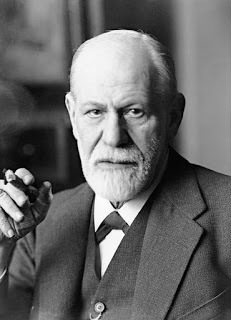 No one's memory goes beyond three and a half.
No one's memory goes beyond three and a half. Freud called it "childhood amnesia."
Freud, being Freud, said we repressed early memories due to the discomfort of our sexual awakening.

Later psychologists ---
without any data to support their theory ---
said that due to lack of focus,
children could not form stable memories until the age of seven.

The truth is that there are far more links between our brain cells in our earliest years
than in early adulthood.
 Our earliest memories
Our earliest memories
are will o wisps blended from genuine recollections,
narratives told us by others, and imaginary scenes churned by our unconscious mind.
 Now, scientists believe that
Now, scientists believe that
as a forest can hold only so many trees, the hippocampus can hold only so many neurons.

Sadly, we cannot trust the few distinct memories
that survive the stormy cycles of growth and decay in our infant brains.
Some of them may be partially or even completely fabricated!

WHAT IS YOUR EARLIEST MEMORY?
DO YOU TRUST IT?
May 3, 2023
VALUE of Dreams in a Nightmare World
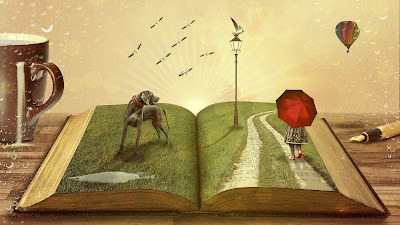 "Even if you cannot change
all the people around you,
you can change the people
you choose to be around."
- Roy T. Bennett
"Even if you cannot change
all the people around you,
you can change the people
you choose to be around."
- Roy T. Bennett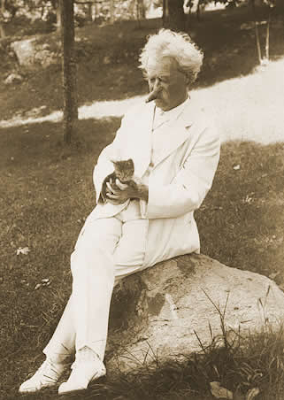 Ghost of Mark Twain rambling by again.
Ghost of Mark Twain rambling by again.
 Old Thoreau keeps telling me
Old Thoreau keeps telling me
“The cost of a thing is the amount of what I will call life
which is required to be exchanged for it, immediately or in the long run.”
Now as much as it galls me, I reckon I believe that.
Which means the cost of a lot of folks' dreams are darn high.
I wonder if those dreams' value turns out to be worth it.
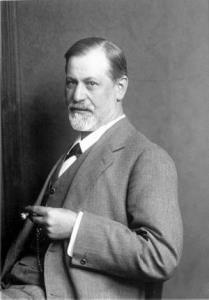
It galls me even more that I agreed with that scoundrel, Freud, when he wrote:
“It is impossible to escape the impression that people commonly use false standards of measurement
that they seek power, success and wealth for themselves and admire them in others,
and that they underestimate what is of true value in life.”

Personally, I believe ...
it is in the heart that the values lie ...
a loving heart is riches, and riches enough, ... without it, intellect is poverty and wealth but rags.
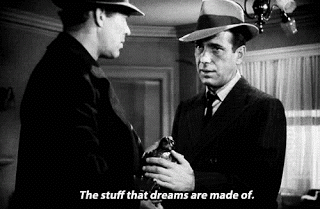
One values a thing when one can’t afford it ...
which could explain I suppose why folks value their dreams so.
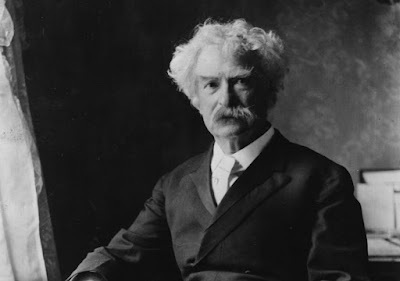
May 1, 2023
A TO ZZ TOP REFLECTIONS_IWSG Post
 https://www.insecurewriterssupportgroup.com/p/iwsg-sign-up.html
https://www.insecurewriterssupportgroup.com/p/iwsg-sign-up.htmlEach time I finish an A TO Z CHALLENGE, I think it will be my last.
I ask myself ...
Did anyone enjoy the ghosts of Twain and Freud sniping at each other?
Did they make my friends laugh, think, and be glad they visited?
It is getting harder, what with my heart attack and my blood courier duties, to write any of my posts and ...
OOOF!
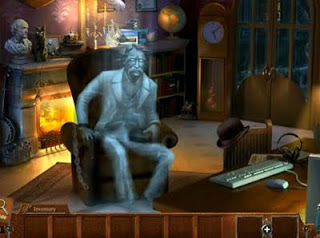 Ghost of Mark Twain here.
Ghost of Mark Twain here. I just had to bump Roland from his chair and take up this laptop contraption of his.
Childbirth is hard, son. Writing is just putting one word after another.
Don't unnerve yourself about it. Just do it.
Dance like nobody's watching. Love like you've never been hurt. Sing like nobody's listening.
(And if you sing like me, nobody will be after the first few notes!)
Live like it's Heaven on Earth -- and if you do it right, it will be close.
Reflecting on this here A TO Z whiz bang affair is all well and good but ...
We should be careful to get out of an experience only the wisdom that is in it - and stop there;
lest we be like the cat that sits down on a hot stove-lid.
She will never sit down on a hot stove-lid again - and that is well;
but she will never sit down on a cold one anymore either!
If you folks had fun visiting, then me and the boy did well.
If not ... well that was Roland's fault and none of my own!
I am the genius of the two of us, you know!

